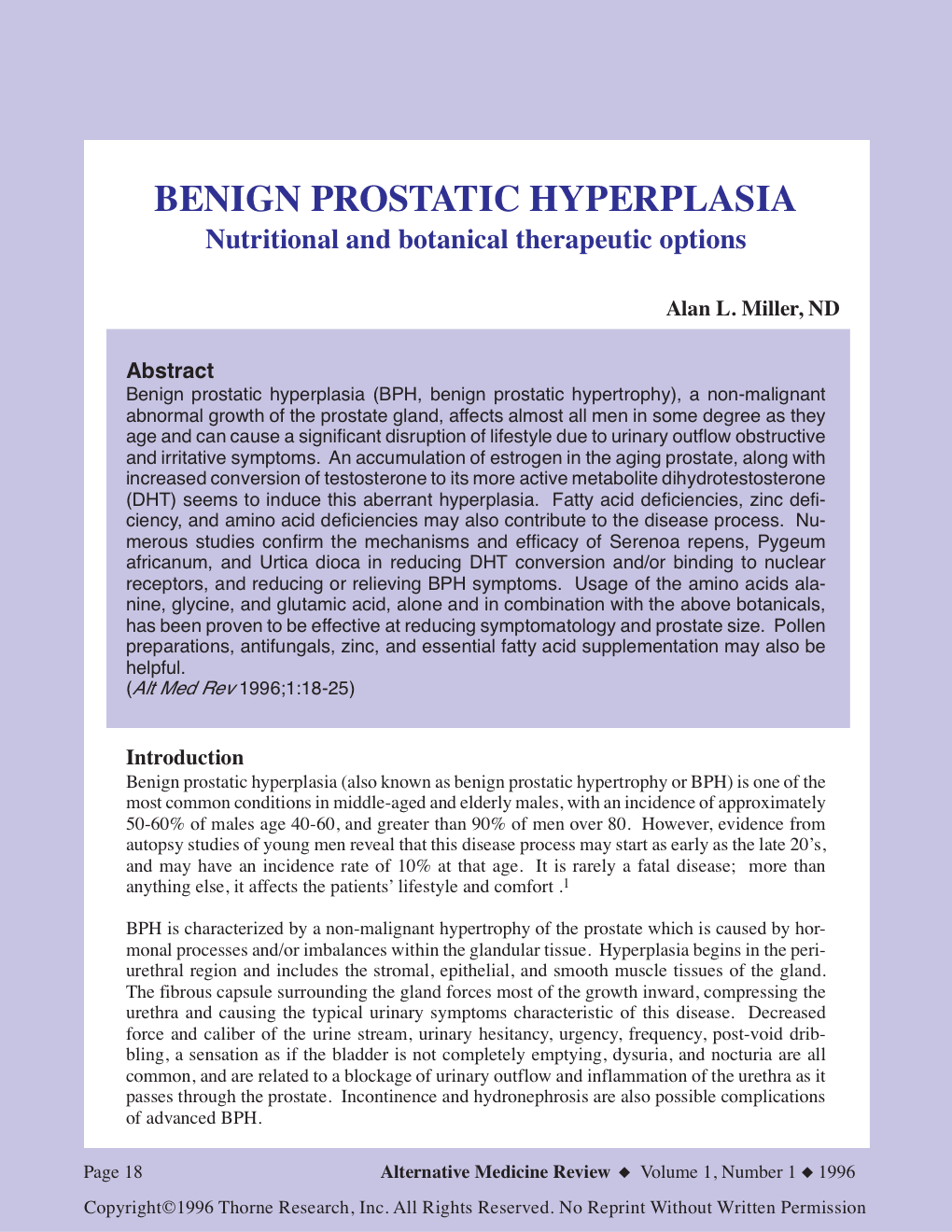Abstract
Benign prostatic hyperplasia (BPH, benign prostatic hypertrophy), a non-malignant abnormal growth of the prostate gland, affects almost all men in some degree as they age and can cause a significant disruption of lifestyle due to urinary outflow obstructive and irritative symptoms. An accumulation of estrogen in the aging prostate, along with increased conversion of testosterone to its more active metabolite dihydrotestosterone (DHT) seems to induce this aberrant hyperplasia. Fatty acid deficiencies, zinc deficiency, and amino acid deficiencies may also contribute to the disease process. Numerous studies confirm the mechanisms and efficacy of Serenoa repens, Pygeum africanum, and Urtica dioca in reducing DHT conversion and/or binding to nuclear receptors, and reducing or relieving BPH symptoms. Usage of the amino acids alanine, glycine, and glutamic acid, alone and in combination with the above botanicals, has been proven to be effective at reducing symptomatology and prostate size. Pollen preparations, antifungals, zinc, and essential fatty acid supplementation may also be helpful. (Alt Med Rev 1996;1:18-25)

